R.L.B. Daggers Specially required 2016-2017
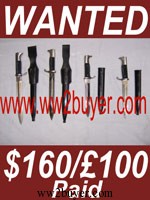
Welcome To German Dagger Buyers.com.

£43,000/$65,000 PAID FOR THE ABOVE DAGGER

We aim to provide one of the very few ethical outlets
for Nazi Memorabilia on the internet.
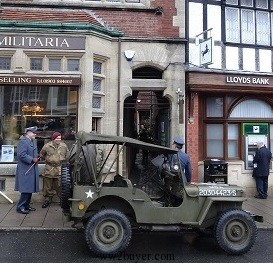
We do not sell on line.
We supply legitimate museum collections.
We despise anti semitism.
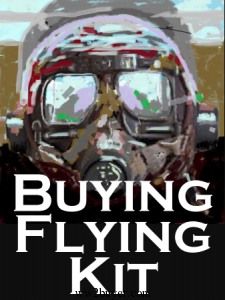
We only require genuine WW1 and WW2 relics
collected and bought home by U.S. and
commonwealth Service personnel.
We are never knowingly outbid on items we require.


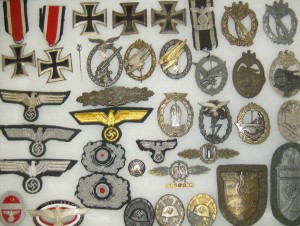
German Air Protection Federation [Reichsluftschutzbund (RLB)]
| Germam Dagger Buyers.com buy much of our stock from Canada |
In 1923 The Reichs Air Ministry the RLB evolved from the existing Deutches Luftschutzverband German Air Protection League. Hermann Goring declared that the RLB was to be the official air raid protection service of the Reich.
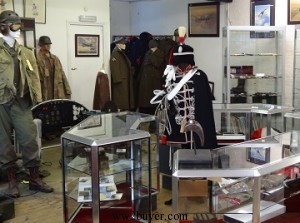
The role of the RLB was to protect the cities and population from hostile attacks.

This section trained the civilian population in civil defense matters and air raid precautions.

With the exception of a small cadre of career officers, the remainder of the force was composed of volunteers similar to the Civil Defense Corps.
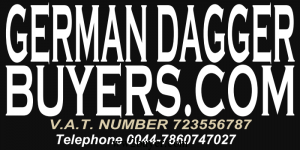
The RLB was subdivided into two formations:
1)… the Luftschutz (Air Raid Protection)

2)… the Warndienst (Air Raid Warning Service). After 1943, the Warndiest became a part of the German Order Police although it still functioned as the Air Raid Warning Service of the Reich.

By 1939 over 15 million men had joined the RLB as volunteers.

Volunteers had to purchase their own steel helmets and had no uniform. These volunteers mainly managed the air raid shelters on a street by street basis. The small cadre of career officers carried out training and management of the volunteer force.
As the war progressed the role of the RLB was expanded to include search and rescue, fire fighting, decontamination, damaged building demolition etc.
The institution of a RLB Dagger
This knife was authorised during 1936 for dress wear by selected permanent NCO’s and subordinate personnel between the ranks of Obertruppmeister and Truppman. The daggers were made by Paul Weyersburg.Ernst Eric Witter and W.K.C.
The blade was plain and 22 cm long.
The grip was made with a black wooden handle with the 1st pattern Luftshutz insignia, an 8 pointed “star burst” with the initials “RLB” at its centre.
The cross guard was in the form of a stylised eagle with short open wings, its feet holding a plain circular wreath with a swastika at its centre.
The pommel was dome shaped, and same as the cross guard, nickel plated.
The scabbard was black stove enamelled and only had a single fitting at the chape which was nickel-plated. On the top of the scabbard was an unusual black painted triangular suspension fitting onto which the small leather hanger was fixed.
No Portapee was worn with the RLB knife. It was only awarded to worthy recipients, those who had long or meritorious service records. It could not be purchased privately
Dagger Information –
1938 RLB Enlisted Mans Dagger
In 1938 the sunburst insignia on the RLB knife grip was replaced. The RLB initials at the centre of the sunburst gave way to a large black enamel swastika.In all other regards the 1938 knife was identical to the 1936 version.
Edit this page









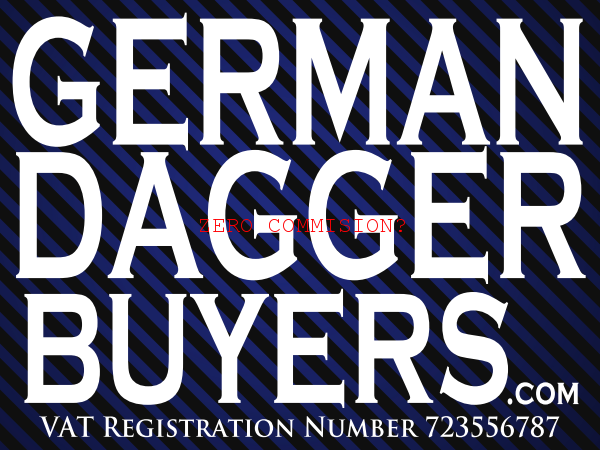



















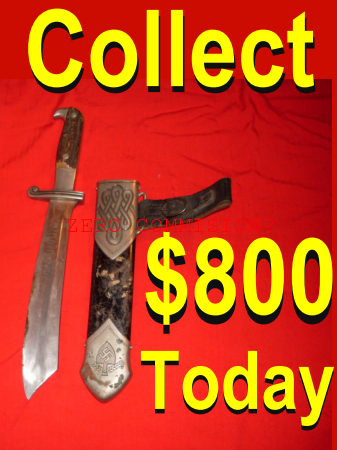
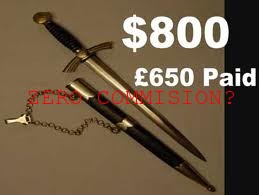











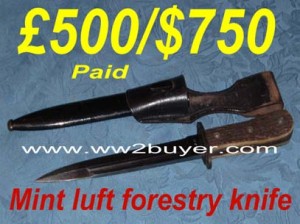
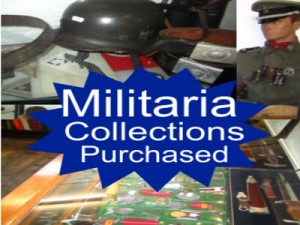
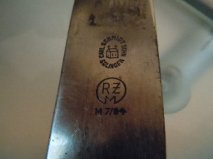
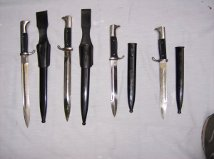

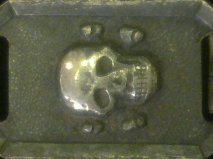
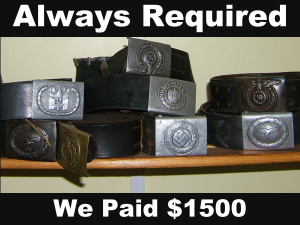
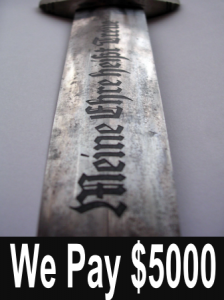
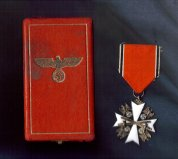
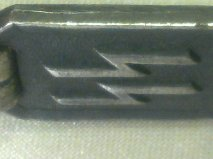
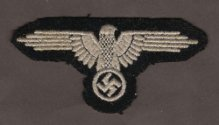
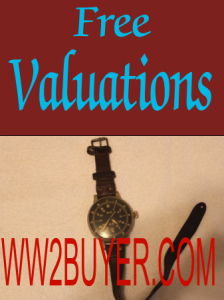

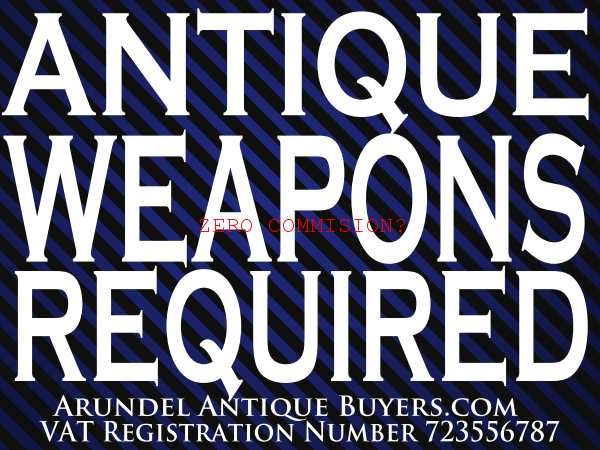
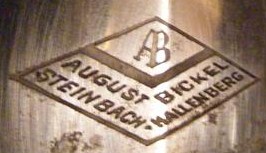
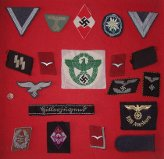
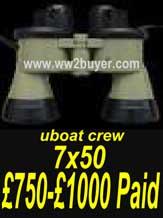
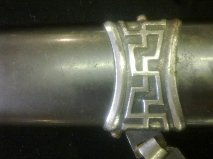
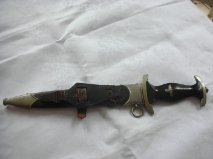
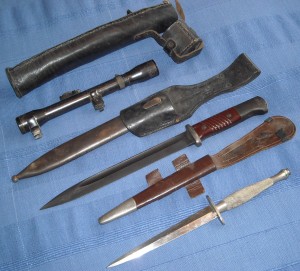
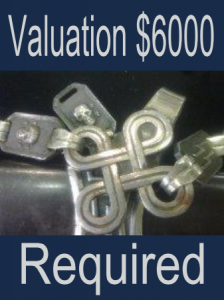
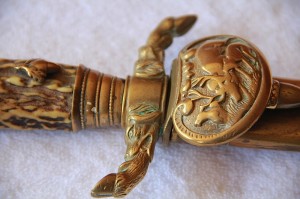
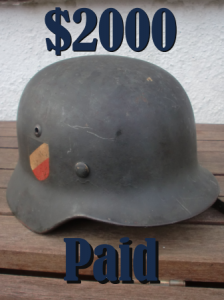
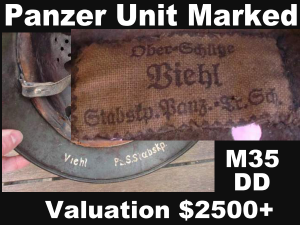
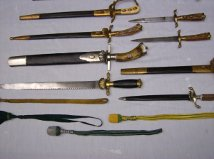
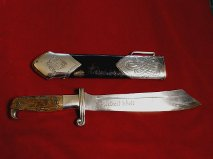
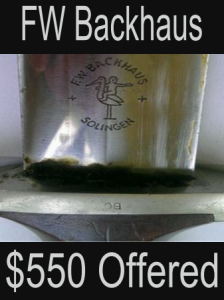
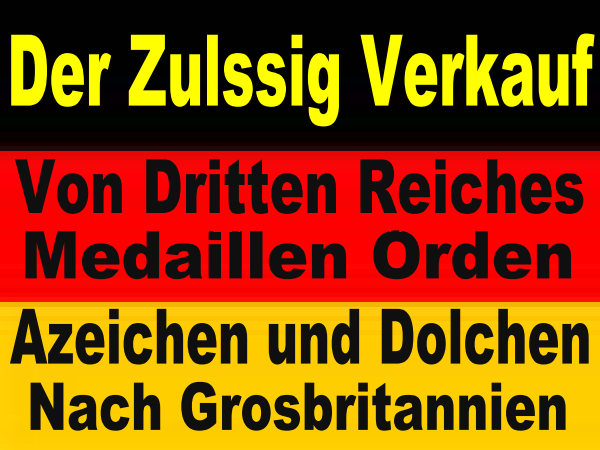
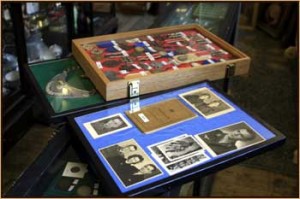
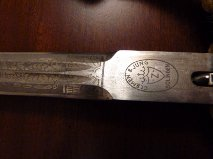
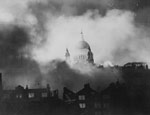
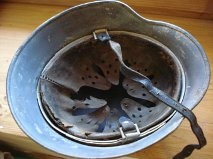
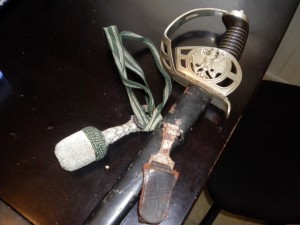
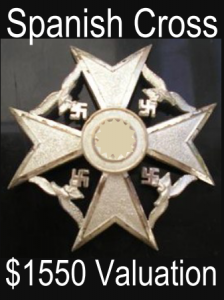
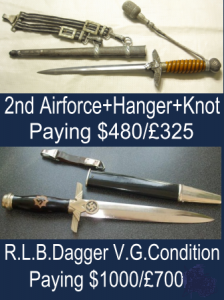
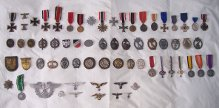
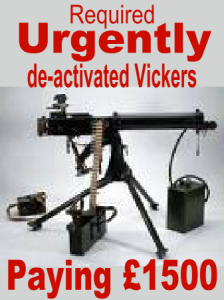
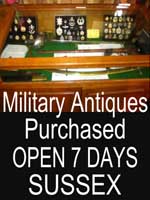
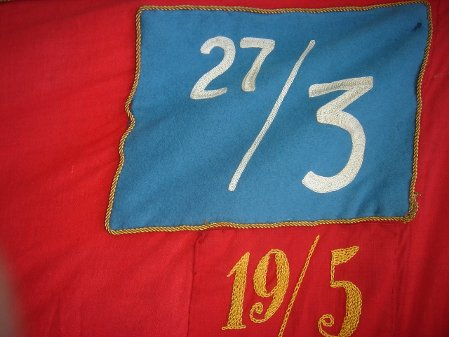
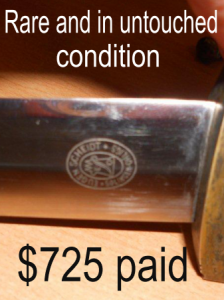

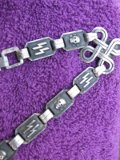
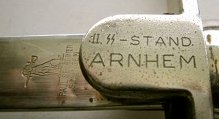
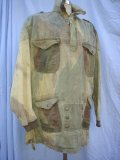
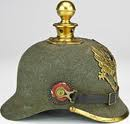

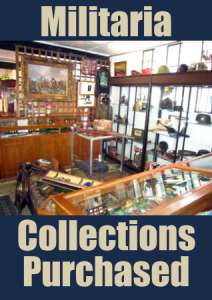
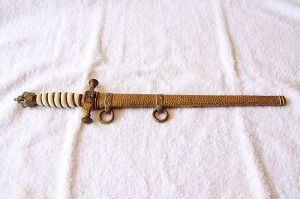
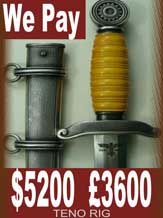
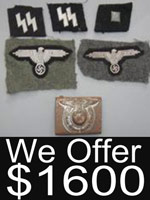
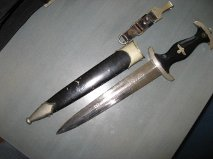
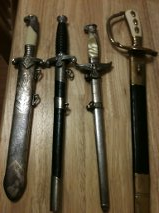


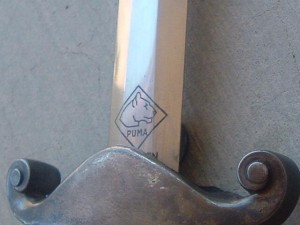
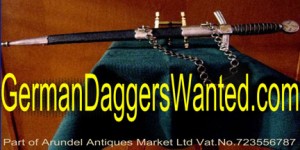

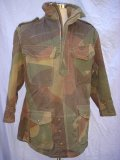
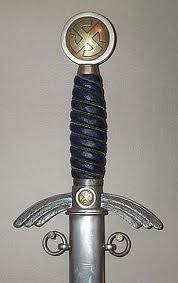













German Air Protection Federation [Reichsluftschutzbund (RLB)]
In 1923 The Reichs Air Ministry the RLB evolved from the existing Deutches Luftschutzverband German Air Protection League. Hermann Goring declared that the RLB was to be the official air raid protection service of the Reich.
The role of the RLB was to protect the cities and population from hostile attacks.
This section trained the civilian population in civil defense matters and air raid precautions. With the exception of a small cadre of career officers, the remainder of the force was composed of volunteers similar to the Civil Defense Corps.
The RLB was subdivided into two formations:
1)… the Luftschutz (Air Raid Protection)
2)… the Warndienst (Air Raid Warning Service). After 1943, the Warndiest became a part of the German Order Police although it still functioned as the Air Raid Warning Service of the Reich.
By 1939 over 15 million men had joined the RLB as volunteers. Volunteers had to purchase their own steel helmets and had no uniform. These volunteers mainly managed the air raid shelters on a street by street basis. The small cadre of career officers carried out training and management of the volunteer force.
As the war progressed the role of the RLB was expanded to include search and rescue, fire fighting, decontamination, damaged building demolition etc.
|
The institution of a RLB Dagger
This knife was authorised during 1936 for dress wear by selected permanent NCO’s and subordinate personnel between the ranks of Obertruppmeister and Truppman. The daggers were made by Paul Weyersburg.Ernst Eric Witter and W.K.C.
e blade being plain and 22 cm long.
The grip was made with a black wooden handle with the 1st pattern Luftshutz insignia, an 8 pointed “star burst” with the initials “RLB” at its centre.
The cross guard was in th
The form of a stylised eagle with short open wings, its feet holding a plain circular wreath with a swastika at its centre.
The pommel was dome shaped, and same as the cross guard, nickel plated.
The scabbard was black stove enamelled and only had a single fitting at the chape which was nickel-plated. On the top of the scabbard was an unusual black painted triangular suspension fitting onto which the small leather hanger was fixed.
No Portapee was worn with the RLB knife. It was only awarded to worthy recipients, those who had long or meritorious service records. It could not be purchased privately
Dagger Information –
1938 RLB Enlisted Mans Dagger
In 1938 the sunburst insignia on the RLB knife grip was replaced. The RLB initials at the centre of the sunburst gave way to a large black enamel swastika.In all other regards the 1938 knife was identical to the 1936 version.
|

































































































































